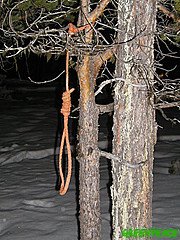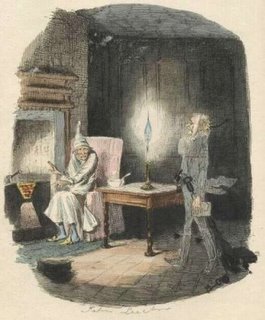Closing the Noose on Barbarism
 At long last, an American legislature is preparing to acknowledge that the lynching of a 14-year-old Canadian boy is an event worthy of some public attention.
At long last, an American legislature is preparing to acknowledge that the lynching of a 14-year-old Canadian boy is an event worthy of some public attention.What Chronicles readers first learned here, and what I wrote about again last month here, finally found its way to the front page of the Globe and Mail yesterday. It’s in the Toronto Star and the Vancouver Sun today, and CBC Radio’s Mark Forsyth and Greg Dixon did a tremendous job making sense of it in an extended interview with historian Keith Carlson here.
However this case is resolved, it should be satisfaction enough that the name of a 14-year-old Sto:lo boy who was lynched by a mob of Americans 121 years ago will not be lost to memory. His name was Louie Sam. Americans lynched 4,742 of their countrymen between the early 19th century and the 1960s. Louie Sam’s hanging is the only documented case of a lynching in Canada.
I made plain some of my own views on the controversy earlier this week here, but there are two aspects of this whole story that should not go unnoticed.
The first is diplomatically and constitutionally delicate, and it involves the discreet and quietly effective engagement of the Honourable Iona Campagnolo, British Columbia’s lieutenant-governor, in first seeing to it that this matter be addressed. To the Tsimshian, Campagnolo is Notz-whe-Neah, and to the Haida she is Saan-naag-Kaawaass. In the Comox Valley she’s considered one of the locals, and Prince Rupert’s people recognize her as one of theirs. I consider her a fellow Gulf Islander, since she was born across Active Pass, on Galiano Island. But to all Canadians west of the Rockies, she is our beloved commander-in-chief.
The second is that while Canada-U.S. relations elsewhere have descended into the realm of schoolyard slanging matches, British Columbians and Washingtonians seem to be able to muddle through without losing limbs in the rhetorical minefield that lies along the Canada-U.S. border. With luck, we’ll all be able to resolve the Louie Sam case without anything blowing up.
So, at the risk of being seen to take sides in the strange cultural warfare underway among the Yanks these days - from up here it seems to be some sort of battle over what is emerging as National Jesus Day or something - I’m going to go say this, straight out, to all our comrades on the other side of the border:
Merry Christmas.
You’ve all had a tough year. Here’s to hoping next year’s better for all of ye.





